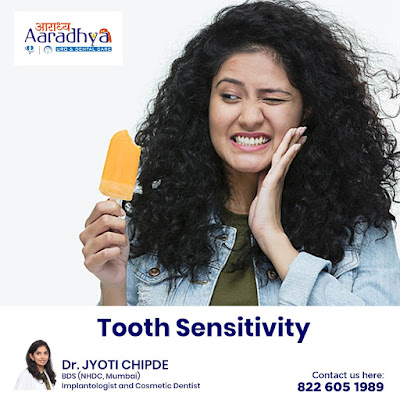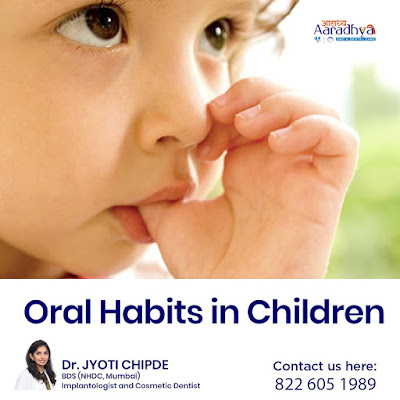CHILDREN'S TEETH
Children's first (milk) teeth are important because, apart from being needed for chewing and speaking, they help to maintain space for the permanent teeth, developing under neath them in the jaws.
If the milk teeth are well looked after, then it is more likely that the second (permanent) teeth will grow into their correct position.
Did you know that babies in utero have about 20 teeth already developing? Children's teeth begin forming before birth. As early as 4 but usually at 6-7 months, the first milk teeth to erupt are the lower central incisors, followed closely by the upper central incisors. Although 20 milk teeth usually appear by age 3, the pace and order of their eruption varies .
The first permanent tooth is usually one of the four six-year-molars -O named because they appear around age 6. Molars are important because they help shape the lower part of the child's face as well as affect the position of the other permanent teeth.
A word of caution: The 6 year permanent molars are often mistaken as milk teeth & neglected.
Permanent second molars usually appear around age 12. At that time, your child will have a complete set of teeth except for the wisdom teeth or third molars which usually appear between age 17 and 25.
Special attention should be paid to your child's teeth during the teen years, as it is during these years that most decay occurs.
When should I take my child to see the dentist?
Ideally, your child's first dental visit should be by the first birthday. Your Dentist will check for decay and other problems, teach you how to clean your child's teeth and identify your child's fluoride needs. By starting dental visits early, you'll help your child build a lifetime of good dental habits.
Is teething painful? Yes. When babies are teething they often have sore and tender gums. The pain usually can be soothed by gendy rubbing the baby's gems with a clean finger, a small, cool spoon or a wet puse. Teething does not cause fever or diarrhea. If your child has an elevated temperature. it needs to be addressed as a separate medical concern .
Can babies get cavities
Yes Even though they will eventually fall out, milk teeth cavities and can get need to be treated. As soon as teeth appear in the south decay can occur. One serious forms of decay among young children is Baby Bottle Tooth Decay. Babies shouldn't fall asleep with bottles in their mouths- the sugar in juices or milk formulas can cause tooth decay, leading to cavities dental discomfort and even tooth loss Plain water is usually best.
When should thumb sucking atop?
Sucking is a natural behaviour for babies. Many infants begin sucking their thumbs or using pacifiers within three months of birth. Neither habit generally poesia dental problem if it is discontinued before the child's first permo bent teeth erupt.
How can the Dentist protect your child's teeth ?
As a child's permanent teeth corrupt. The Dentist can prevent cavities from forming with the help of sealants and Fluoride treatment. Sealants are a safe, painless and low cost way to help Depecky grooves and fissure protect your child's can be sealed with sealants to teeth from decay, The sealant is bonded to the chewing surface of the molars and premolars, and thus prevents these teeth from decay. Fluoride application is a single sitting procedure done once every six months to make the tooth structure stronger and prevent cavities.
What are space maintainers?
A milk tooth usually stays in until a permanent tooth underneath pushes it out and takes its place Unfortunately, some children lose a milk tooth too soon. If this happens, the teeth bisect may move into the empty space resulting in lack of space for the permanent teeth, leading to crowding. This can be prevented by the use of Space Maintainers. It is more! affordable - and easier on your child to keep teeth in normal position with a space maintainer than to move them back in place with orthodontic treatment.
Dental Health Tips
With your help. your child can have a lifetime of healthy smiles!.
- A balanced diet is important for healthy teeth and gums. Children especially need calcium to help build strong teeth (milk, cheese.etc.).
- Discourage sugary or starchy snacks.
- Snack in moderation and include beverages to wash the mouth of food particles.
- Set regular snack-times to avoid constant exposure to cavity-causing foods.
- Seek early dental care for your young one. Begin oral hygiene when an infant's first tooth emerges.
- Encourage good oral health and hygiene habits early. Have youngsters brush frequently with fluoride toothpaste.
Teaching your child to maintain good dental habits is the beginning of good dental health. Proper personal care and regular visits to the Dentist can keep dental problems to a minimum.
BRUSHING TECHNIQUE
- Holding the tooth 45 angle, behind short up and down motion on the outer surface of the teeth. Do not scrub sidewards.
- To brush the inside of the front teeth, entleup and down stroke with the head of the brush.
- Use back and forth motion for chewing surfaces.
Dr. Jyoti Chipde is an experienced Best dentist in Indore. They treat all types of diseases related to teeth like - Sports Dentistry, Bridal Dentistry, Dental Implant Fixing, Cosmetic Dentistry, Gum Disease Treatment / Surgery, Discolored Tooth Restoration and Crowns and Bridges Fixing etc. If you are looking for the Best sports dentist in Indore, contact to Dr. Jyoti Chipade. Book an appointment today call now us 8226051989, 7389501402 and visit for more information - http://www.indoredentist.com/
Online Book an appointment today :- http://www.indoredentist.com/ContactUs.htm
Please go through our social media :
like our page to know more about Dentist
Please do follow on Instagram




Comments
Post a Comment